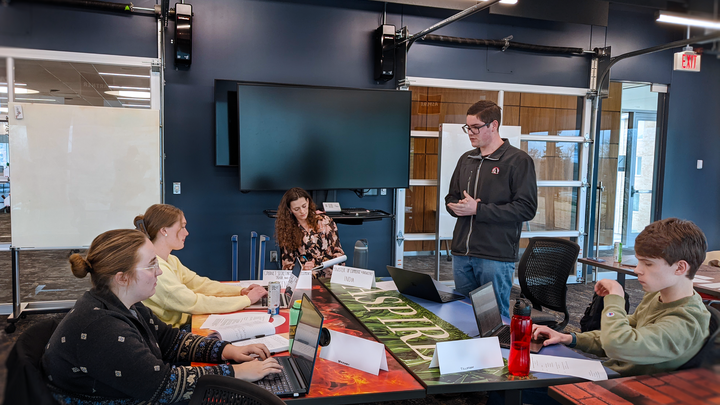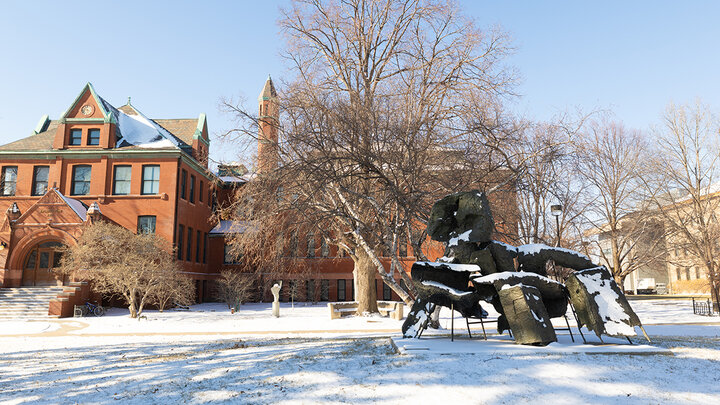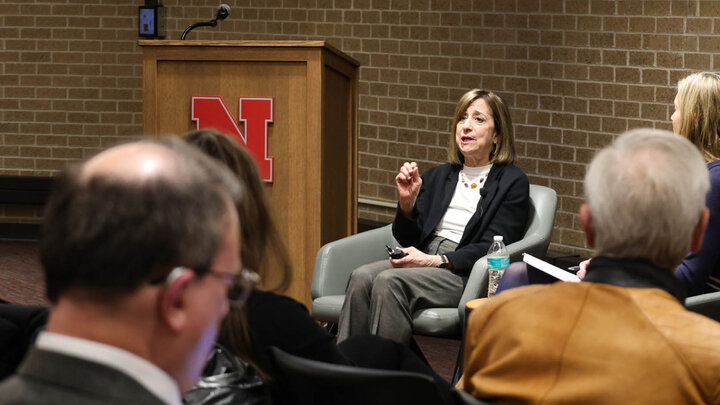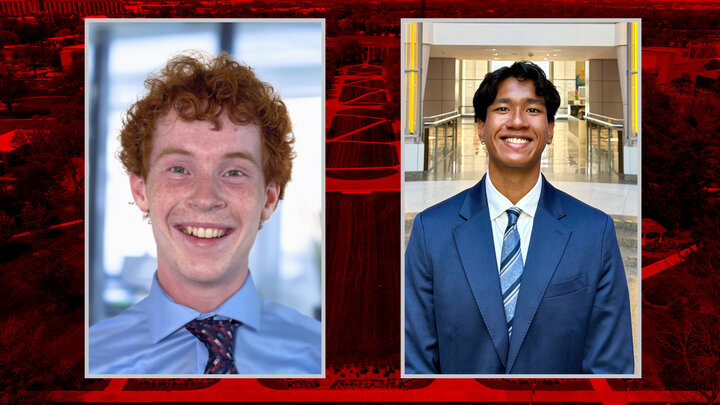During the 2025 spring semester, the Yeutter Institute introduced a new special topics course for the international trade minor, “Globalization, Trade & Development: Inevitable or Invention?”
Part of the curriculum included students taking on the roles of trade ministers and representatives from Kenya, India, the European Union and the United States in a simulation called the “Grand Bargain.”
They were tasked with serving on a special committee of the World Trade Organization to create a reform agenda that would balance the scale for countries across the economic development spectrum.
Yeutter Institute assistant director Cheyenne Gerlach created and taught the course to challenge students to explore the distinctions between naturally occurring events and those shaped by human intention. The course explores the shifting frameworks of global trade, the history of international development, and the multifaceted impacts of globalization on communities around the world.
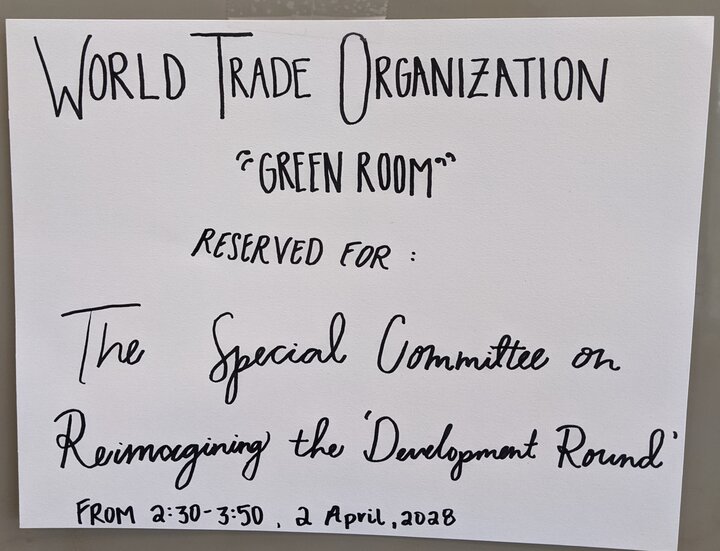
Gerlach said that meetings with international development specialists at the World Trade Organization’s Public Forum last fall in Geneva, Switzerland helped propel her toward creating the course.
“The forum really opened my eyes to the conversations unfolding on how free trade agreements can not only be a force for economic good, but also social and environmental good,” Gerlach said. “That's when I knew there was enough content here for a course.”
Designed to challenge students to think critically about the forces shaping our global systems, the course presents an opportunity to question the very foundations of economic and political development—and who ultimately benefits from it.
The course also serves as an introduction to differing—and often dueling—perspectives in rural sociology, policy analysis, and international development theory.
“To me, the core questions in sociology are ‘whose voices are being heard?’ and ‘to whose benefit?’" Gerlach said. "Leveraging my background in development and rural sociology to offer a class on the invention or inevitability of trade and development seemed like a great way to offer students a platform to think deeply and critically about those questions."
Students leave the course equipped with a flexible toolbox of lenses and conceptual frameworks to help make sense of the “wicked problems” that have shaped history and will continue to shape the global landscape in the decades to come.
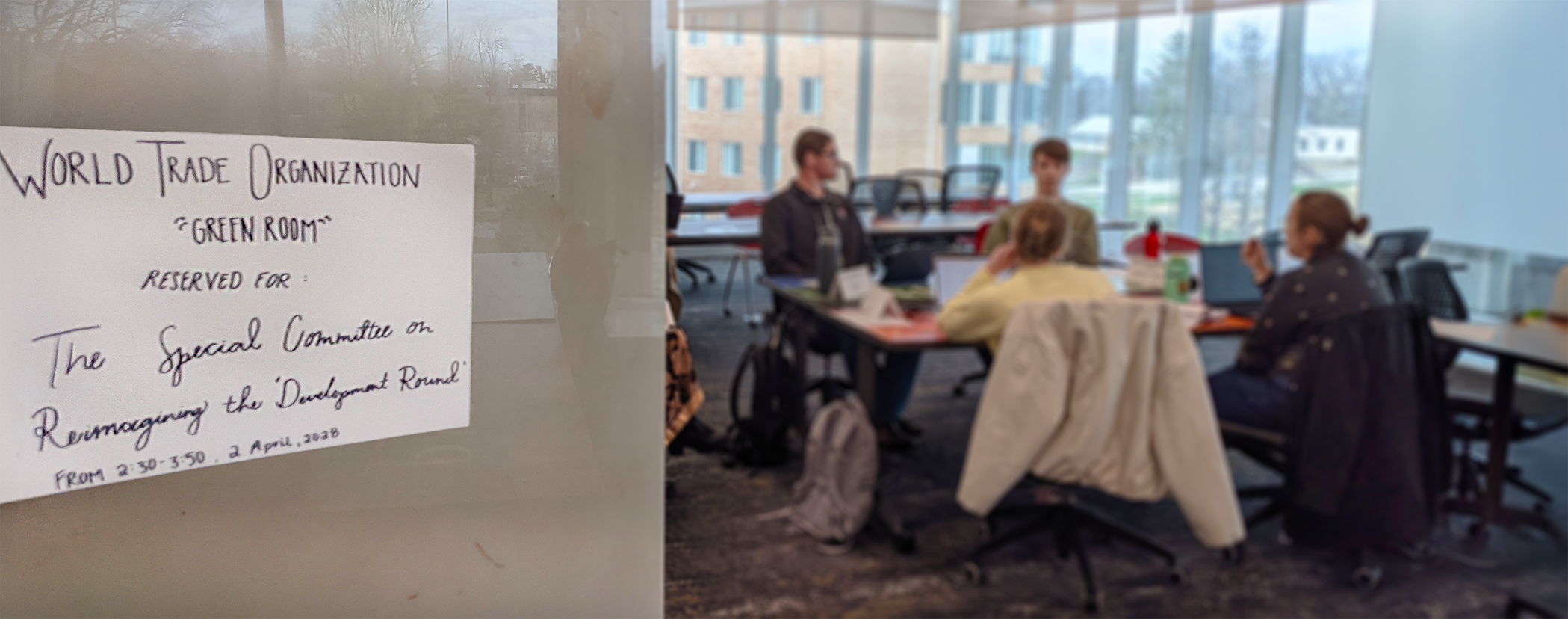
The course is part of a minor in international trade, which the Yeutter Institute launched in 2023 to offer students from any major the opportunity to gain insight into the workings of the international trading system and connect that knowledge to areas they are already studying, including agriculture, policy, business, and economics. With a focus on real-world application, the minor provides a flexible and hands-on curriculum that helps students develop both technical knowledge and critical thinking skills.
“Guiding students in the exercise of learning to see complex international negotiations and trade-offs from multiple points of view is a key skill we seek to develop through our courses in the Yeutter Institute,” said Yeutter Institute director Jill O’Donnell. “This class is designed to do just that and has been a great addition to the minor in international trade.”
As part of the course, students participated in a simulation of the World Trade Organization titled “The Special Committee on Reimagining the ‘Development Round.’” This mock negotiation placed students in the roles of trade ministers from countries across the economic spectrum, tasked with drafting new trade frameworks that prioritize sustainability, fairness, and equity.
The simulation reflected real-world challenges and forced students to confront tensions between national interests and global responsibility.
“The Grand Bargain was one of the highlights of the semester," said Bryson Rader, a student in the course. "I was able to see from India’s perspective how different countries look at the trading system and how it should operate. I generally consider issues on behalf of the United States, so it was helpful to be forced to look at a developing, large country like India to see the trade system from a Global South perspective.”
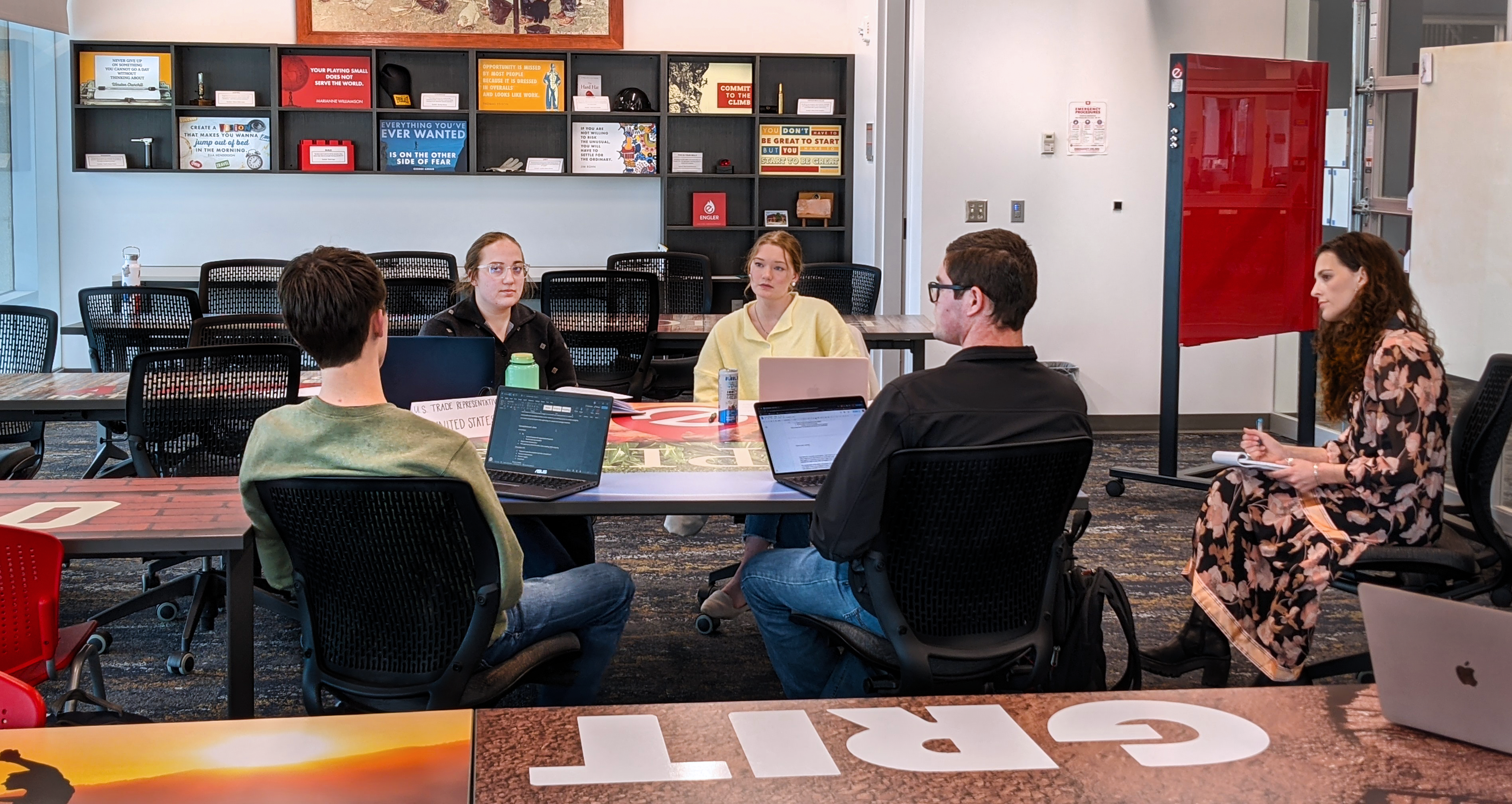
In line with the institute’s mission, this course pushes students to connect classroom theory with real-world complexity. Rather than offering simple answers, the course empowers students to navigate the gray areas of complex and contradictory ideas, and insists on nuance, empathy, and intellectual rigor.
Gerlach designed the course to bridge theory and practice. A major theme throughout the semester was unveiling the origins of ideas such as development, free trade, and globalization. Placing economic and political interventions in the broader context of historical and ongoing interactions between the Global North and Global South, Gerlach wanted to pull back the curtain on cycles of well-intentioned exploitation—cycles often framed as humanitarian or progress-driven.
With courses like Globalization, Trade & Development: Inevitable or Invention? the Yeutter Institute continues to position itself at the intersection of academic rigor and practical policy relevance—ensuring that the next generation of trade leaders is ready to ask critical questions and lead with context in a rapidly changing world.
